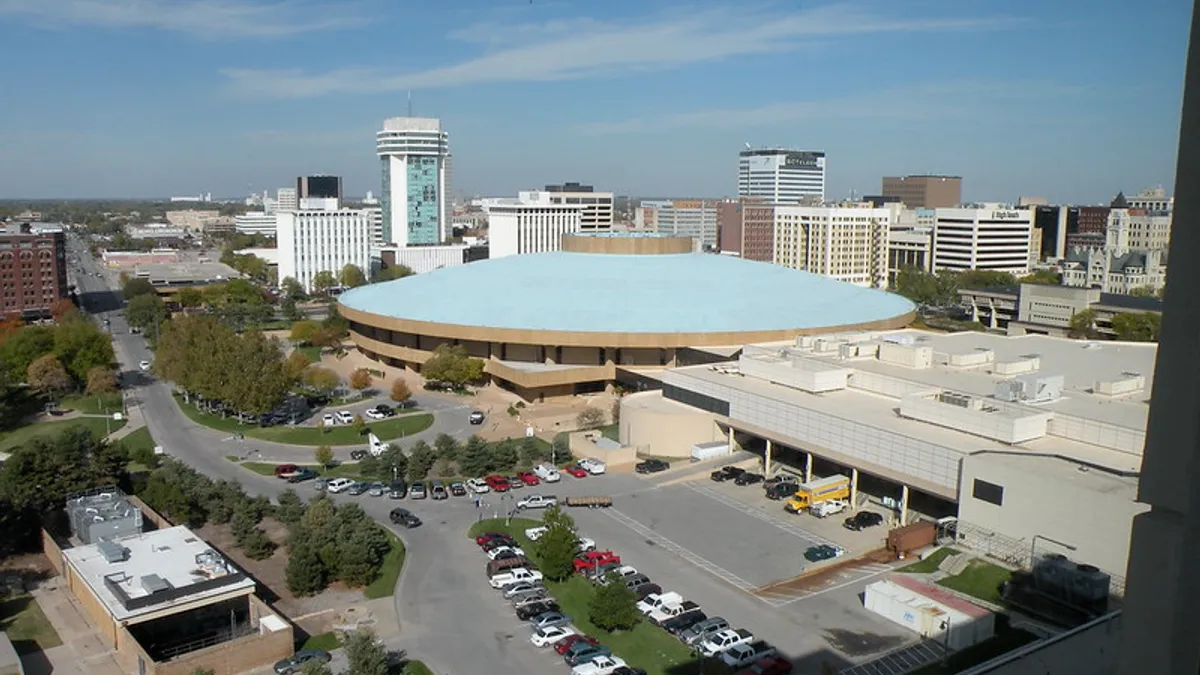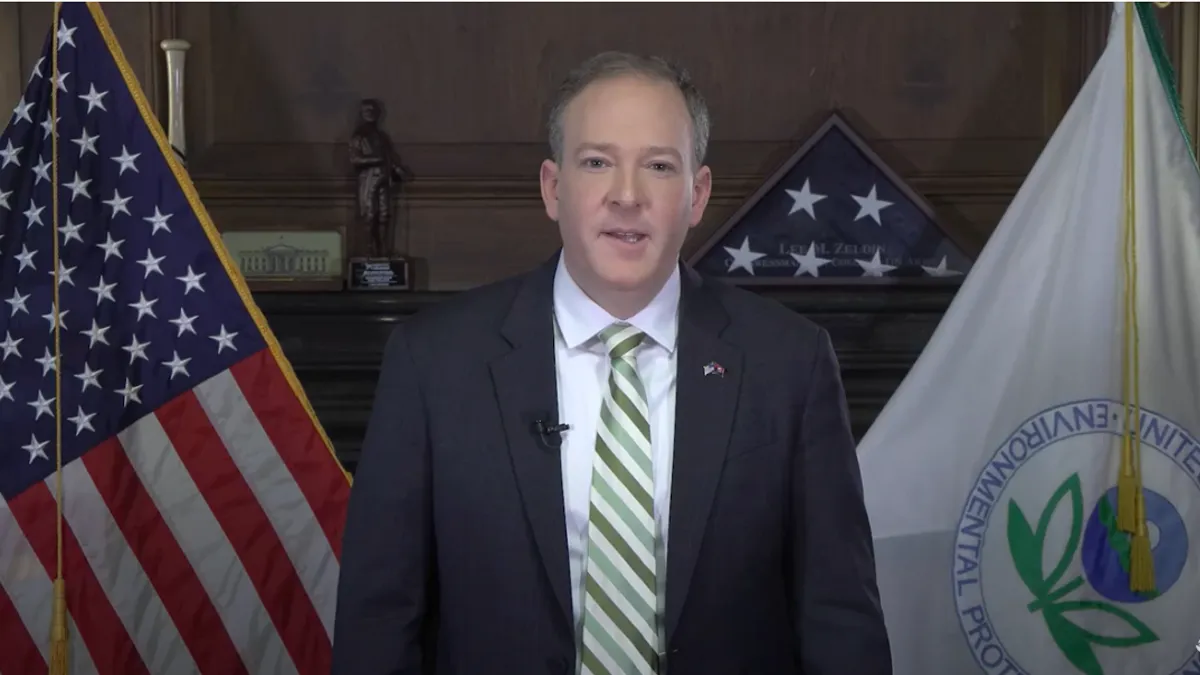When the United States withdrew from the Paris agreement in 2017, 407 mayors across the country responded with fierce backlash by signing their cities up for the agreement and its ambitious climate goals.
Wichita, KS Mayor Jeff Longwell decided not to sign onto the agreement. But since then, he's pushed for a number of green initiatives including the installation of a solar panel project at the area high school, new devices for water meter reading and a street signal synchronization system that curbs the city's rush hour (or "rush 10 minutes," as he put it).
Can a mayor not sign the Paris agreement, but still lead their city in alternative energy and eco-conscious practices? We caught up with Longwell, who is up for reelection in November, to learn how he plans to continue pushing for climate action in Wichita.
The following interview has been edited for brevity and clarity.
SMART CITIES DIVE: How have Wichita's smart city initiatives evolved since you began as mayor in 2015?
JEFF LONGWELL: Some of [what] we [are] doing now is putting in devices that allow us to read our water meters by just traveling in a vehicle down the block without physically getting out. That's a new initiative that we took on a few years ago. Technology has obviously changed the way that we collect data on water meters and cut back on [the] physical labor of walking meter to meter. But we're also working on synchronization of signal lights through town... It has the potential to add in some different layers of technology that would allow us to have Wi-Fi hot spots and things of that nature.
Is congestion a major issue for residents? How does Wichita’s signal light synchronization help cut back on the time people spend on the road?
LONGWELL: Congestion is all relative to where you live, right? In Wichita, you can get anywhere in town in 20 minutes and we're a big city... We probably stretch 20 miles wide. People get frustrated if they spend more than 10 minutes in traffic.
Our average commute time in Wichita is 13 minutes. We don't have "rush hour," we have "rush 10 minutes." It's all relative, but at the end of the day, we don't want people sitting with their vehicles operating because it emits gas that can impact our clean air. So is congestion a problem? Not really. I suppose it's how you look at it. But we don't want cars idling in the middle of the city.
You decided not to sign onto the Paris agreement in 2017. Can you explain what your concerns were about joining the agreement?
LONGWELL: My concerns are still the financial arrangement [and] the burden it was putting on our citizens. Why should the United States pay for the lion’s share when too many countries were not stepping up financially like the United States? That doesn’t mean we can't get behind some green initiatives. We do.
[I’ve] rallied people to get behind a new solar energy project that's powering one of our high schools. It's an outstanding project that we would love to duplicate at other area high schools and it's starting to make a difference. I think [the school] reported last month that they saved something like $10,000 in electric bills.
Are solar and other alternative energies a big priority?
LONGWELL: Absolutely. Wind energy is big in Kansas. A city of 400,000 doesn't have places for wind turbines, but we can nearly line every street with solar panels. Solar energy is something that we should continue to rally around and encourage in our city. We have a lot of sunny days in Kansas. That sets itself up quite well for alternative energy.
Wichita debuted work with [a gunshot detection system]. Do you feel that the technology has been successful for what it’s been implemented for? Do you think that technology is enough to curb gun violence?
LONGWELL: I don't think there's going to be any one initiative where I think we can say, 'Oh, we’ve done that. We've cured the problem.' It's going to take a comprehensive approach to fighting crime before we can say that we're making a difference. We also need a comprehensive approach to mental illness in our community. I don't think we have enough information [yet] on the shot detection to say how successful it is in reducing any gun crimes, but we have a couple of other initiatives that we're getting to roll out.
We received a $750,000 grant from the federal government to put in a gun ballistic lab. We think that will be another piece to help curtail gun violence in our community. There's a number of different things that we have to do that are certainly more comprehensive than just putting in a shot detection system and saying, 'Oh, problem solved.' I wish it were that easy, but it’s not that easy.
What's been one of your proudest accomplishments as mayor?
LONGWELL: Growing jobs in this community in a very diverse manner has been something we're pretty proud of. I helped promote, starting four years ago, [a program] to provide more opportunities for high school youth. We had a program called youth employment project that had about 100 high school youth enrolled. We would teach [the students] soft skills to find them summer intern jobs, providing them learning opportunities. We now call it HYPE — Helping Youth Prepare for Employment — and this past year we provided internships and trained 1,251 high school students.
A number of new companies are on board that are really excited about this program and understand the benefits of encouraging young people to have access to all of the different opportunities that are right here in Wichita. Many of them are now choosing Wichita because of these new experiences and new opportunities. To move the needle from 100 students to over 1,200 students in roughly over 3.5 years has been something pretty exciting to see and something I’m pretty proud of.
CORRECTION: This story has been updated to remove misinformation regarding the city's gunshot detection system.




















